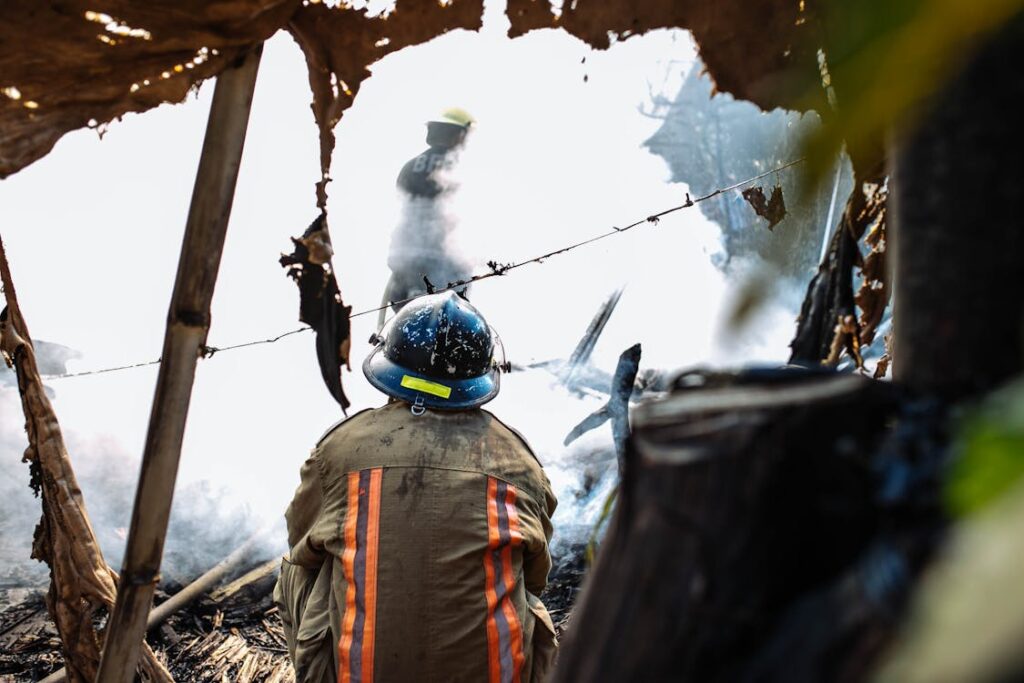The AFFF industry was valued at $756 million in 2021 and is projected to grow to $913 million by 2026. This fact alone makes the Aqueous Film Forming (AFFF) industry lucrative for new entrepreneurs. Therefore, it’s no wonder the industry has long attracted prospective business owners with promises of high demand and significant profit margins.
Apart from margins and financial prospects, the allure of making a product to save lives and protect properties is undeniably encouraging. And there are around 31 million entrepreneurs in the U.S. alone, so you can imagine the number going after this opportunity. However, the AFFF industry is not as glamorous as it may seem. Its underbelly is lined with various legal, environmental, and ethical concerns.
In this article, we will discuss why new entrepreneurs must give the AFFF industry a wide berth.
1. Environmental Concerns
Before we delve further into the environmental concerns of AFFF, consider this: EWG estimates that in the U.S., around 200 million citizens drink water contaminated with PFAS. According to TorHoerman Law, this is because AFFF contains per- and poly-fluoroalkyl chemicals, also known as “forever chemicals.” These chemicals are highly effective in suppressing liquid fuel fire but are not biodegradable, so there’s widespread soil and water source contamination.
The regulatory landscape around AFFF and PFAS is constantly changing as the government and authorities recognize the dangers of these chemicals. In fact, a report states that at least 15 U.S. states banned or regulated the use of AFFF in 2021. The U.S. Military, which helped develop the firefighting foam in the 1960s, has announced plans to completely phase it out by October 2024.
Additionally, the general public is becoming increasingly aware of the dangers of PFAS. There has been growing media coverage and advocacy campaigns around the issue. Multiple types of research have linked AFFF with various forms of cancer. These include breast cancer, bladder cancer, testicular cancer, prostate cancer, and so on.
If you or someone close to you developed AFFF foam cancer, you could sue the makers of AFFFF, like 3M, Chemour, DuPont, etc., for compensation. As you can see, new entrepreneurs in the AFFF industry are at risk of facing litigation and public backlash, leading to negative marketing and boycotts.
2. Ethical Considerations
The ethical considerations surrounding the AFFF industry are substantial, and new entrepreneurs should be wary of them. We already know that PFAS is linked to several cancers. But apart from cancer, AFFF has also been linked to other issues like immunity suppression, development issues in children, and thyroid disruptions.
For the new entrepreneurs exploring the AFFF industry, the main question is whether it’s justifiable from a moral standpoint to profit from a dangerous product. When you know that the product you are making is causing more harm in the long term than short-term benefits, would you still want to invest in it?
These long-term consequences and health concerns have led to several AFFF makers shutting shops, like Kidde-Fenwal. The company has a whopping 4,700 PFAS lawsuits against its name and has filed for bankruptcy, citing these lawsuits. Entrepreneurs considering the AFFF industry must weigh the ethical implications of their choice.
3. Financial Risks
If you are still willing to take a chance with the firefighting foam industry and want to pivot to safer alternatives like SFFFs, the next biggest hindrance is the financial investment. The cost of acquiring necessary permits, certifications, R&D to develop new, safer foam formulations, etc., contributes to high startup costs.
Not to forget, the initial setup of the production facility will be a huge investment. According to a report, setting up an industrial chemical production business can cost anywhere from $835,000 to $4,500,000. Apart from the cost of starting the business, the potential for legal and financial liabilities is yet another massive risk.
As a company that manufactures and markets AFFF, you will constantly risk litigation from victims of the contamination. Moreover, with stricter regulations and motions to phase out AFFF, demand is sure to decline in the coming years. Investing in a market with an unpredictable future means you are setting yourself up for failure.
The AFFF industry might prove profitable in the short term, but the risks associated with it are substantial. The persistent PFAS contamination issues, growing public awareness, and stringent regulatory landscape around PFAS are worrisome for new entrepreneurs. Considering the high startup costs, associated risks, and market volatility, exploring another safer industry with more sustainable practices would be wiser.
Read More:


